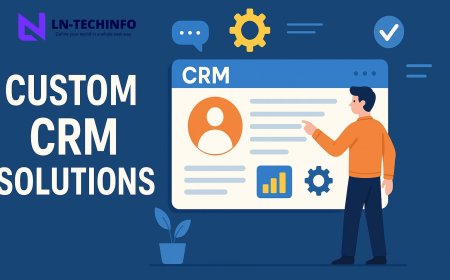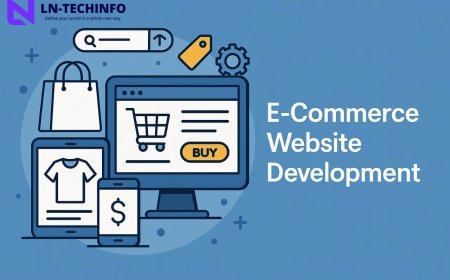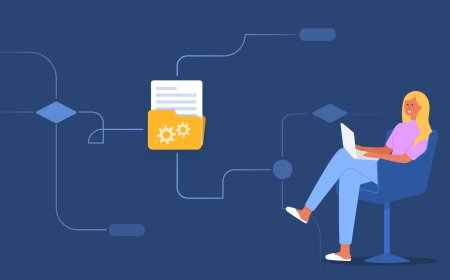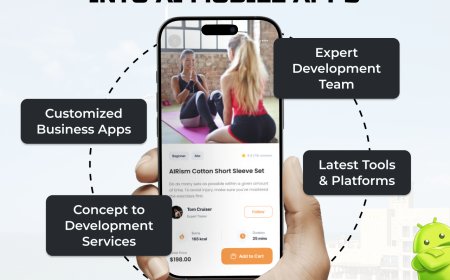10 Benefits of Investing in Adaptive Artificial Intelligence Development Today
Discover 10 key benefits of investing in adaptive AI development today, from smarter automation to future-proofing your business strategy.

In an age where technology is rapidly reshaping industries, Adaptive Artificial Intelligence (Adaptive AI) has emerged as a game-changer. Unlike traditional AI, which follows static programming rules, Adaptive AI can continuously learn, evolve, and adjust its responses in real-time based on new data and experiences. This makes it particularly valuable in dynamic, fast-changing environments.
For businesses, governments, and organizations looking to stay competitive and innovative, investing in Adaptive AI today offers a wide range of strategic advantages. In this blog, well explore 10 compelling benefits of embracing Adaptive AI development now rather than later.
1.Real-Time Decision Making
Adaptive AI systems can analyze data as it's being generated and make decisions on the fly. This is crucial in areas such as financial trading, autonomous vehicles, or real-time fraud detection, where delayed decisions can lead to significant losses.
By investing early, businesses can capitalize on real-time analytics, making faster, smarter decisions that give them an edge over competitors still relying on delayed insights.
2.Continuous Learning and Improvement
One of the most powerful traits of Adaptive AI is its ability to learn continuously from new data inputs, feedback, and outcomes. Unlike static models that require manual updates, adaptive systems self-optimize over time.
This results in:
-
Improved accuracy and efficiency
-
Reduced need for retraining models
-
Systems that evolve with changing user behavior or market conditions
3.Enhanced Personalization
Adaptive AI enables ultra-personalized experiences across sectorswhether in e-commerce, healthcare, or education. For instance:
-
Retail platforms can tailor product recommendations in real time
-
Healthcare providers can create dynamic treatment plans
-
Learning platforms can adapt content to individual student progress
Investing now allows businesses to build long-term loyalty through seamless, individualized user interactions.
4.Better Risk Management
In industries like insurance, finance, and cybersecurity, Adaptive AI offers proactive risk mitigation by spotting emerging patterns and anomalies that static systems miss.
Examples include:
-
Identifying subtle fraud behaviors
-
Adjusting insurance risk models based on changing customer behavior
-
Preventing cyberattacks with evolving threat detection
This results in reduced losses, increased compliance, and improved resilience.
5.Scalability and Flexibility
Traditional AI systems often struggle when new conditions or large datasets are introduced. Adaptive AI is built for change, meaning it:
-
Scales seamlessly with data volume and complexity
-
Adjusts to shifting environments without complete overhauls
-
Reduces development time for new applications
This flexibility is ideal for organizations planning to scale rapidly or operate in volatile markets.
6.Reduced Operational Costs Over Time
Although initial development can be resource-intensive, Adaptive AI offers cost efficiencies in the long term by:
-
Reducing human intervention and maintenance
-
Lowering error rates through continuous learning
-
Minimizing downtime and manual updates
Over time, businesses gain higher ROI and operational stability through automation and self-sustaining AI ecosystems.
7.Future-Proofing Your Business
Technology is evolving faster than ever. Companies that delay AI adoption risk becoming obsolete. Adaptive AI ensures businesses are not only keeping up but are ready for future challenges like:
-
Shifting consumer behaviors
-
Regulatory changes
-
Global disruptions (like pandemics or supply chain issues)
Investing in adaptive models today is an investment in resilience and agility tomorrow.
8.Faster Innovation Cycles
With Adaptive AI, businesses can prototype, test, and iterate at speed. It accelerates innovation in product development, marketing, logistics, and more by:
-
Rapidly learning from user feedback
-
Adjusting models without starting from scratch
-
Supporting agile experimentation with reduced risk
This means businesses can stay ahead of the curve with continuous improvements and new offerings.
9.Improved Customer Satisfaction
Customers expect faster, smarter, and more personalized services. Adaptive AI enables businesses to:
-
Respond to queries instantly via evolving chatbots
-
Offer proactive solutions before issues escalate
-
Tailor experiences that feel human and intuitive
This leads to stronger customer relationships, higher retention, and positive brand perception.
10.Competitive Advantage
At its core, Adaptive AI empowers companies to outperform rivals by being smarter, faster, and more responsive. Businesses that adopt early:
-
Gain insights others cant
-
Make better decisions faster
-
Provide superior user experiences
This leads to market leadership, increased customer trust, and long-term growth.
Conclusion
Adaptive Artificial Intelligence Development is not just a technological advancementits a strategic imperative. While traditional AI has paved the way for automation and analytics, Adaptive AI brings a new level of intelligence, agility, and foresight that can transform how businesses operate and grow.
By investing in Adaptive AI development today, organizations position themselves to:
-
Lead their industries
-
Anticipate and navigate change
-
Continuously improve their operations
As we enter an increasingly data-driven, automated future, the early adopters of Adaptive AI will be the innovators, disruptors, and winners in the years to come.





















































